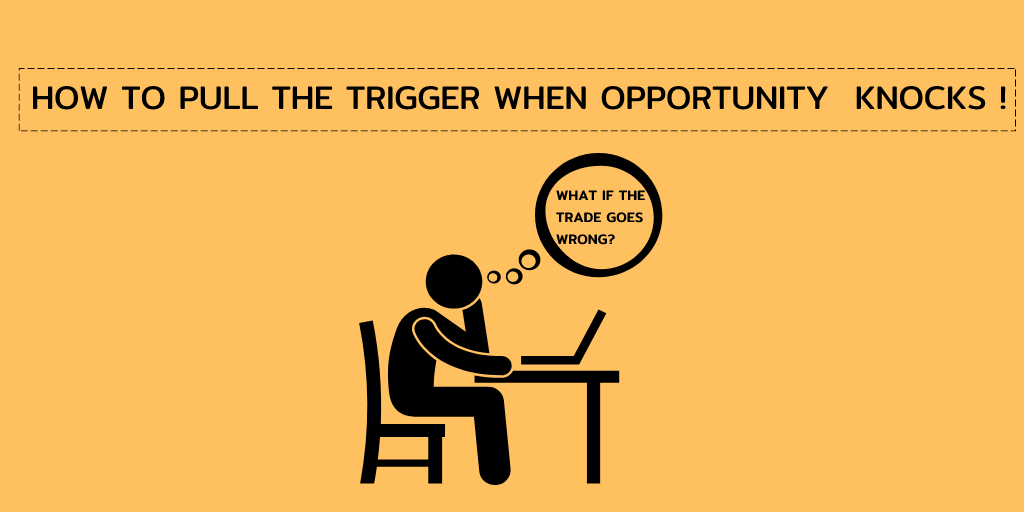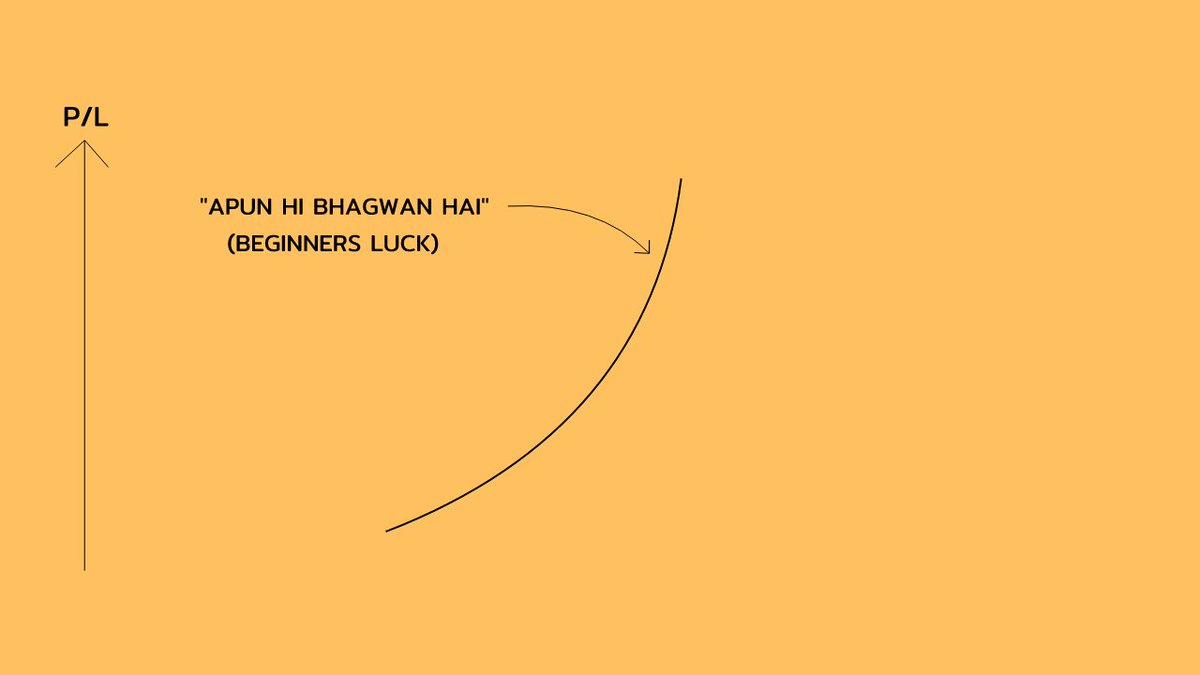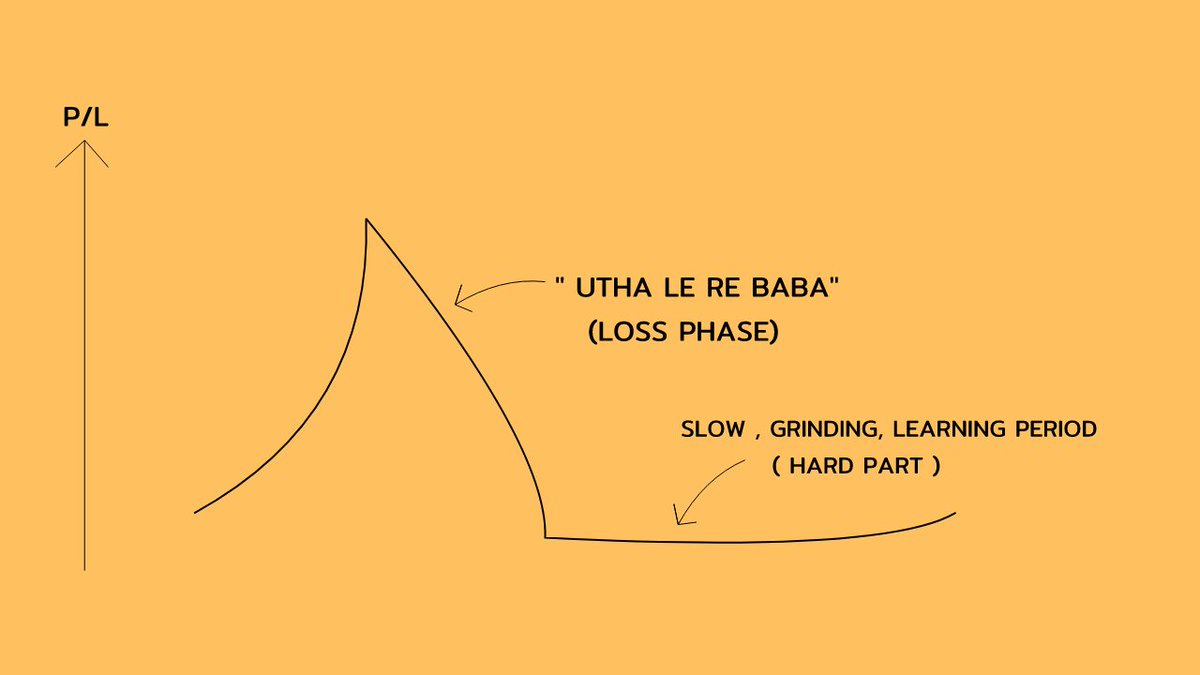Possibly the greatest NBER abstract ever written.
But also school calendars were far shorter. So idk how it shakes out.
More from Lyman Stone 石來民
So a few days back I was tweeting about SSRIs. The big question with these drugs is: why do controlled trials routinely show such small effects when practitioners and patients report life-changingly-large effects?
So first off, at this point the evidence is pretty clear that SSRIs and other anti-anxiety/anti-depression drugs truly don't do very much. Their average effects are beneath clinical significance, as I tweeted about here:
Basically, the problem these drugs face is that while they actually see relatively LARGE effects.... but that placebos in those trials ALSO see large effects (and most untreated depression improves within a year anyways).
So basically you have this problem where:
1. The condition tends to improve on its own in a majority of cases
2. Placebo effects for the condition are unusually large
Which means the large crude effects of SSRIs get swamped.
So that raises two new questions.
1. (Not my focus here) Are we treating these conditions appropriately given their untreated prognosis is usually (though certainly not always!!) "goes away in a few months"?
2. Why are placebo effects so unusually large?
So first off, at this point the evidence is pretty clear that SSRIs and other anti-anxiety/anti-depression drugs truly don't do very much. Their average effects are beneath clinical significance, as I tweeted about here:
What's the best recent empirical assessment of SSRI/SNRI effectiveness which deals with heterogeneity and long-term effects in a plausible way?
— Lyman Stone \u77f3\u4f86\u6c11 (@lymanstoneky) December 4, 2020
Basically, the problem these drugs face is that while they actually see relatively LARGE effects.... but that placebos in those trials ALSO see large effects (and most untreated depression improves within a year anyways).
So basically you have this problem where:
1. The condition tends to improve on its own in a majority of cases
2. Placebo effects for the condition are unusually large
Which means the large crude effects of SSRIs get swamped.
So that raises two new questions.
1. (Not my focus here) Are we treating these conditions appropriately given their untreated prognosis is usually (though certainly not always!!) "goes away in a few months"?
2. Why are placebo effects so unusually large?
More from Trading
A thread on getting intraday (any timeframe) data to excel without any coding. Limited to only last 60 days. Fetches from zerodha chart.
👇
1. Open the chart on zerodha web in chrome. Right click and select 'Inspect'. Click 'Network' as shown in this pic.
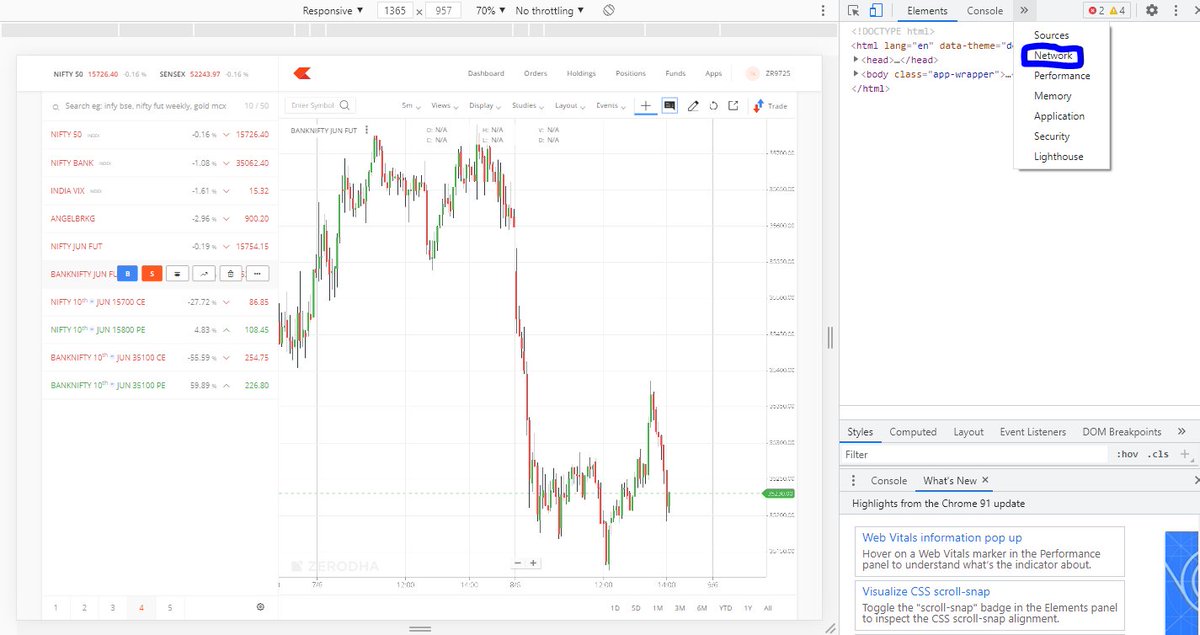
2. Right click on the last entry on the table you see and click 'copy as cURL (bash)'
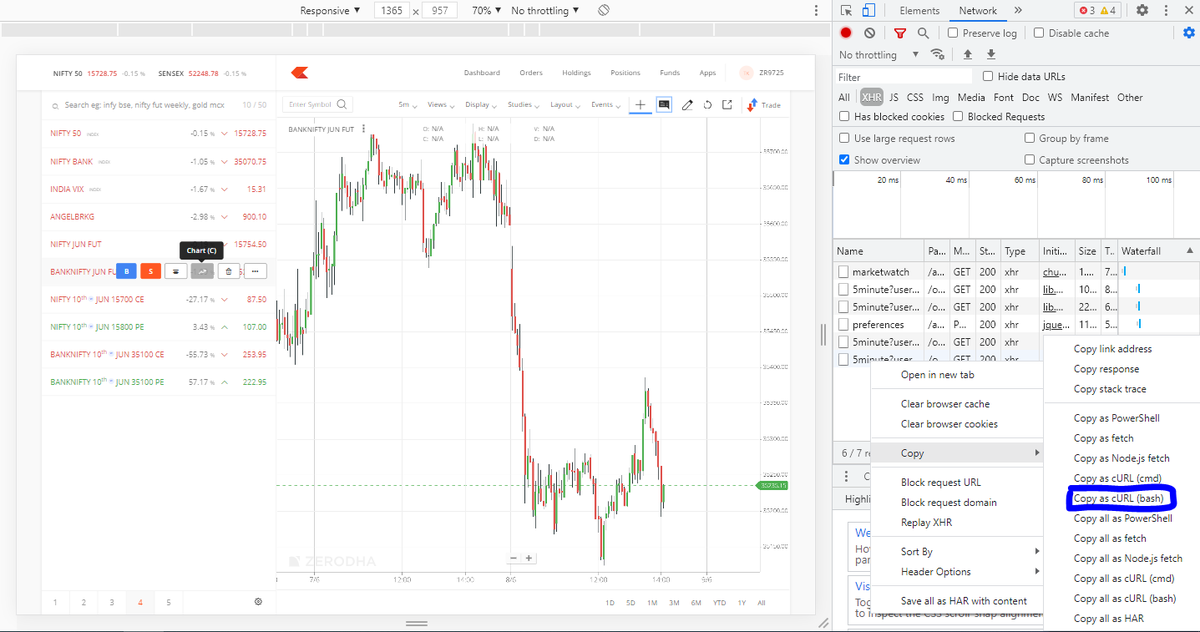
3. Go to website https://t.co/f8rhwoGLUc and paste on the left box and click 'Run'
4. The output below candles written on right of box is the ohlc, volume and oi data. Copy and paste to excel.
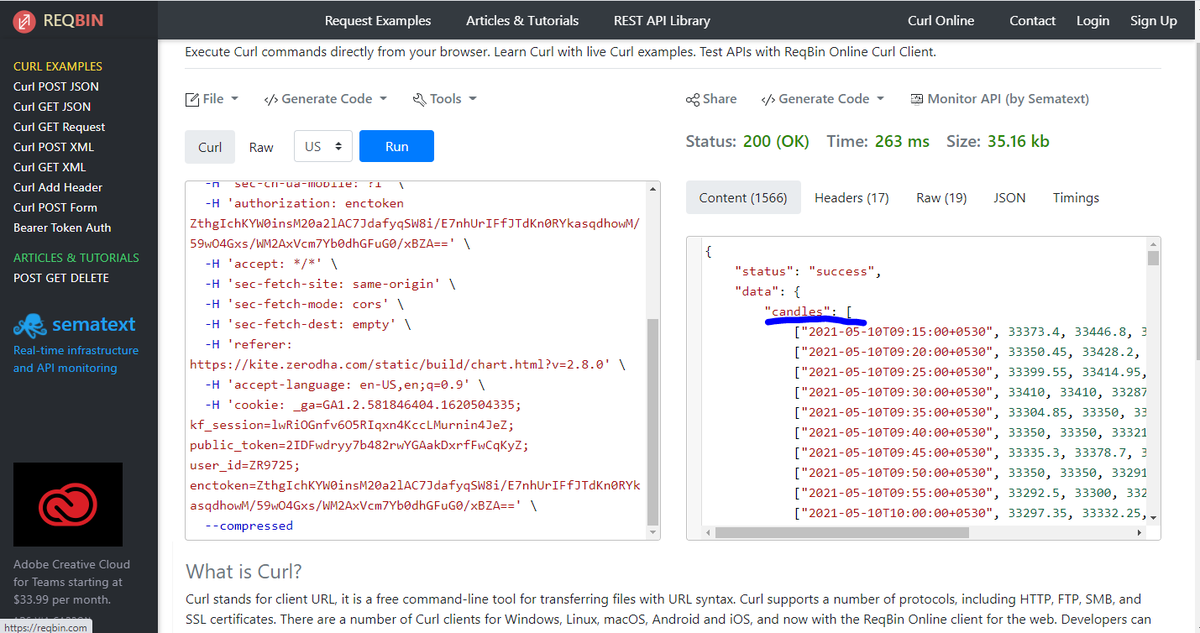
👇
1. Open the chart on zerodha web in chrome. Right click and select 'Inspect'. Click 'Network' as shown in this pic.

2. Right click on the last entry on the table you see and click 'copy as cURL (bash)'

3. Go to website https://t.co/f8rhwoGLUc and paste on the left box and click 'Run'
4. The output below candles written on right of box is the ohlc, volume and oi data. Copy and paste to excel.

You May Also Like
Neo-nazi group #PatriotFront held a photo op in #Chicago last weekend & is currently marching around #DC so it's as good time as any to compile a list of their identified members for folks to watch for
Who are these chuds?
Patriot Front broke away from white nationalist org Vanguard America following #unitetheright in #charlottesville after James Alex Fields was seen with a VA shield before driving his car into a crowd, murdering Heather Heyer & injuring dozens of others
Syed Robbie Javid a.k.a. Sayed Robbie Javid or Robbie Javid of Alexandria,
Antoine Bernard Renard (a.k.a. “Charlemagne MD” on Discord) from Rockville, MD.
https://t.co/ykEjdZFDi6

Brandon Troy Higgs, 25, from Reisterstown,
Who are these chuds?
Patriot Front broke away from white nationalist org Vanguard America following #unitetheright in #charlottesville after James Alex Fields was seen with a VA shield before driving his car into a crowd, murdering Heather Heyer & injuring dozens of others
Syed Robbie Javid a.k.a. Sayed Robbie Javid or Robbie Javid of Alexandria,
Happy Monday everyone :-) Let's ring in September by reacquainting ourselves with Virginia neo-Nazi and NSC Dixie affiliate Sayed "Robbie" Javid, now known by "Reform the States". Robbie is an explicitly genocidal neo-Nazi, so lets get to know him a bit better!
— Garfield but Anti-Fascist (@AntifaGarfield) August 31, 2020
CW on this thread pic.twitter.com/3gzxrIo9HD
Antoine Bernard Renard (a.k.a. “Charlemagne MD” on Discord) from Rockville, MD.
https://t.co/ykEjdZFDi6

Brandon Troy Higgs, 25, from Reisterstown,



